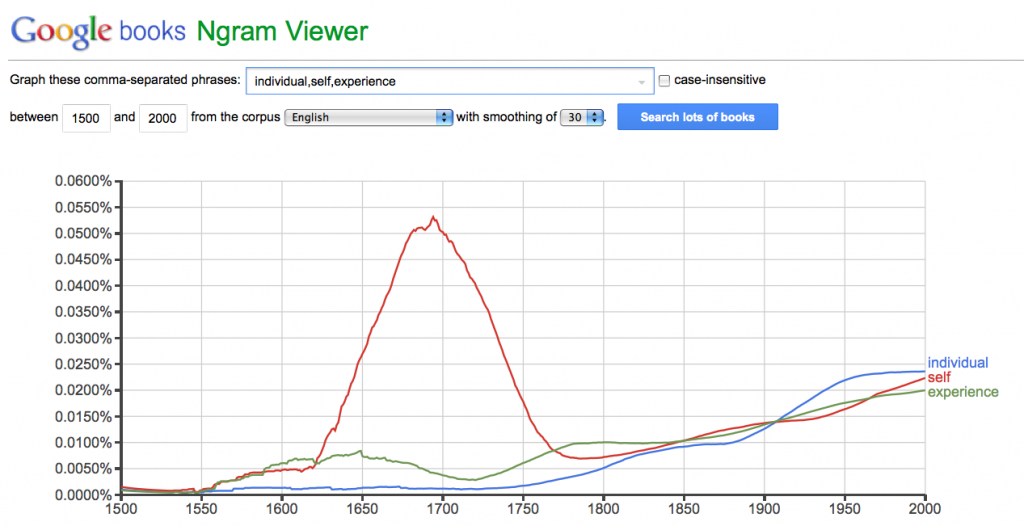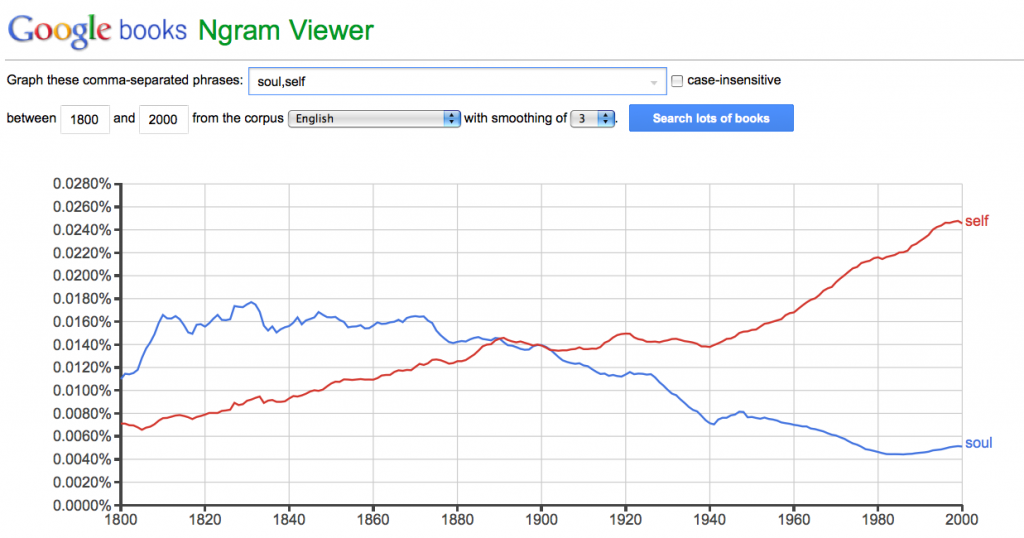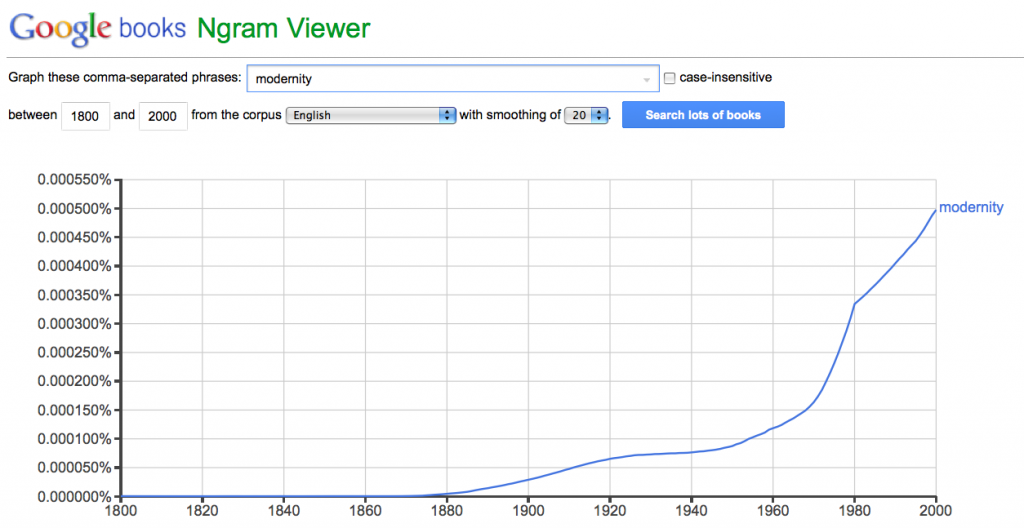 Find more People of the Twenty-First Century.
Find more People of the Twenty-First Century.
“You’d Never Ever Phone Up a Friend and Say ‘Hey, Come on Over to My House; Let’s Go on the Internet Together’.”
 The author Douglas Coupland — who you might remember from his bestselling first novel, Generation X (1991) — was interviewed the other morning on the radio, about his new book, Kitten Clone: Inside Alcatel Lucent, a look into one of the world’s largest telecomm companies.
The author Douglas Coupland — who you might remember from his bestselling first novel, Generation X (1991) — was interviewed the other morning on the radio, about his new book, Kitten Clone: Inside Alcatel Lucent, a look into one of the world’s largest telecomm companies.
For some time I’ve been thinking about the normative model of the lone individual (one that’s as much in keeping with Rousseau’s notion of society being the result of separate citizens making agreements with each other as it is with a modern economic theorist’s notion of lone consumers all making rational choices) that is usually presupposed when it comes to warnings about the effects of the internet — and this interview made this all very apparent. For who’s to say what ought to count as an individual? For at least in the U.S., corporations and fetuses now seem to have the status — evidence that there’s an arm wrestling match going on right now over the limits of what counts as a person. (The fact that “we” even debate it should be sufficient evidence to dispel with the notion of individuality as actually describing anything other than the ongoing debate itself.) Continue reading ““You’d Never Ever Phone Up a Friend and Say ‘Hey, Come on Over to My House; Let’s Go on the Internet Together’.””
“Smile for the Camera”
 I was browsing through the late Raymond Williams’s Marxism and Literature (1977) the other day and came across a passage in the chapter entitled “Signs and Notations” that read as follows:
I was browsing through the late Raymond Williams’s Marxism and Literature (1977) the other day and came across a passage in the chapter entitled “Signs and Notations” that read as follows:
For the ‘sign’ is ‘arbitrary’ only from the position of conscious or unconscious alienation. Its apparent arbitrariness is a form of social distance, itself a form of relationship…. The formal quality of words as ‘signs,’ which was correctly perceived, was rendered as ‘arbitrary’ by a privileged withdrawal from the lived and living relationships which, within any native language … make all formal meanings significant and substantial, in a world of reciprocal reference which moves, as it must, beyond the signs.
There’s a few important points here, I think, worth mulling over — perhaps with regard to the garment workers in the above photo. Continue reading ““Smile for the Camera””
Are You Really Free to Read?
 I have a book problem. Having built a whole wall of bookshelves recently, and filled much of that space with books we already owned, perhaps I should say that I have a bookshelf problem. My family and I enjoy collecting books, often searching at thrift stores for treasures that others have discarded. We have found a range of works, including works by nineteenth and early twentieth century authors whom we deeply appreciate but would never have found browsing at Barnes and Noble or perusing the suggestions on Amazon. These book-buying endeavors reinforced our experiences browsing bookstores in India and Singapore that also led us to gems not commonly available or even known in the United States. Continue reading “Are You Really Free to Read?”
I have a book problem. Having built a whole wall of bookshelves recently, and filled much of that space with books we already owned, perhaps I should say that I have a bookshelf problem. My family and I enjoy collecting books, often searching at thrift stores for treasures that others have discarded. We have found a range of works, including works by nineteenth and early twentieth century authors whom we deeply appreciate but would never have found browsing at Barnes and Noble or perusing the suggestions on Amazon. These book-buying endeavors reinforced our experiences browsing bookstores in India and Singapore that also led us to gems not commonly available or even known in the United States. Continue reading “Are You Really Free to Read?”
The Situational Self
 There was an interesting story on the radio the other day — looking at language (the so-called function or filler words (e.g., pronouns, conjunctions, prepositions, auxiliary verbs, etc.) in distinction from content words, i.e., the vs. school) as a way to understand identity. Continue reading “The Situational Self”
There was an interesting story on the radio the other day — looking at language (the so-called function or filler words (e.g., pronouns, conjunctions, prepositions, auxiliary verbs, etc.) in distinction from content words, i.e., the vs. school) as a way to understand identity. Continue reading “The Situational Self”
The Monetized Self
 Given what Culture on the Edge is all about, I was thinking, the other day, about this now common notion of “identity theft” — and the way in which it signifies a rather dramatic narrowing of how, at least in this one setting, we use that word, “identity.” Continue reading “The Monetized Self”
Given what Culture on the Edge is all about, I was thinking, the other day, about this now common notion of “identity theft” — and the way in which it signifies a rather dramatic narrowing of how, at least in this one setting, we use that word, “identity.” Continue reading “The Monetized Self”
Border Wars: The Fight for Nothing at All

I often muse about what it would be like to have relocated to a city without a strong and divisive college rivalry. Don’t get me wrong – I like living in Kansas City (quite a lot, actually). But when I moved here, I was unaware of how significantly one’s alma mater could be translated into a marker of one’s social worth. For those unaware, Kansas City is an urban hub in the Midwest that, despite the name, straddles two states: Kansas and Missouri. While there are a number of colleges and universities within the city itself, Kansas City is populated by very large numbers of people who been schooled at either the University of Missouri, Columbia (“Mizzou” or “MU”), or the University of Kansas (better known as “KU”) in the nearby town of Lawrence. Continue reading “Border Wars: The Fight for Nothing at All”
The Return of the Self
 Something interesting took place in the late 18th century; although we were already seeing books on such topics as self-denial, self-ignorance, and self-condemnation, a prior, declining discourse on the self seems to have been re-purposed and successfully connected to two other, equally prior, discourses that had, up until then, been of little consequence: the discourse on the individual and the discourse on experience. Continue reading “The Return of the Self”
Something interesting took place in the late 18th century; although we were already seeing books on such topics as self-denial, self-ignorance, and self-condemnation, a prior, declining discourse on the self seems to have been re-purposed and successfully connected to two other, equally prior, discourses that had, up until then, been of little consequence: the discourse on the individual and the discourse on experience. Continue reading “The Return of the Self”
Different Discourse, Same Effect

 Modernity began officially around 1889, I guess, when one discourse first supplanted the other — though with both achieving the same effect, of course: producing the impression of uniform individual existence despite all of us being always and already immersed in the social. Continue reading “Different Discourse, Same Effect”
Modernity began officially around 1889, I guess, when one discourse first supplanted the other — though with both achieving the same effect, of course: producing the impression of uniform individual existence despite all of us being always and already immersed in the social. Continue reading “Different Discourse, Same Effect”
The Self as Legal Fiction
 Want a good example of how the notion of a continuous, accountable self is nothing more or less than a social and, most importantly, a legal fiction — one that, for a variety of reasons, we all agree to perpetuate… well, at least sometimes?
Want a good example of how the notion of a continuous, accountable self is nothing more or less than a social and, most importantly, a legal fiction — one that, for a variety of reasons, we all agree to perpetuate… well, at least sometimes?
Then check out this story on the current controversy over General Motors’ liability (or…, lack of it, since it is “the new GM,” after all) over defects they (though who does that pronoun now identify?) now admit to knowing about….
It’s a nifty trick: for corporations are persons under the law in the U.S. but, when they need to be, they can be person’s without a history, and thus outside the law — they are, at times, the perfectly postmodern person with no continuity or trace: Persona non historia.
